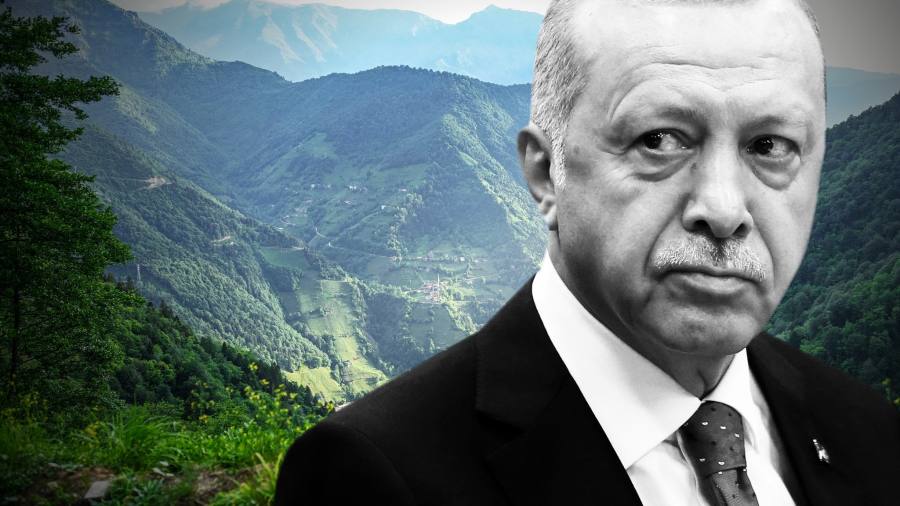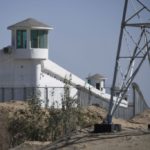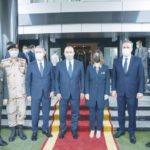Hediye Bas blames the dams, highways and network of tunnels cutting through the wooded Ikizdere Valley in north-east Turkey for choking water supplies and stunting her crops. Now work on a planned quarry is proving a breaking point and eroding her support for President Recep Tayyip Erdogan.
Bas and other villagers in Erdogan’s ancestral province of Rize are trying to stop the excavation of 20m tonnes of stone for a new port 40km away on the Black Sea coast.
Dynamite has already blasted off chunks of the mountain for an access road, briefly turning the stream where Bas’ family fishes an unnatural turquoise. For the quarry to operate, up to 1m trees will be felled and explosives will turn nearby vegetable patches toxic, while biodiversity in an adjoining protected area will be imperilled, a local conservation group has warned.
Erdogan “probably thought we would support any project he undertakes here because he wins almost all of our votes. But I won’t vote for him any more”, said Bas. “No one from the village finds work in these projects, they just deprive us of the valley we rely on for income.”
The rare protest in one of the president’s strongholds is emblematic of broader discontent with his economic stewardship that polls suggest is hitting support for the ruling Justice and Development party (AKP) across the country. Inflation has been stuck in double digits for most of the past four years and unemployment is about 14 per cent.
The $200m port is part of $325bn of infrastructure investment planned in Turkey over the next decade. Erdogan has pinned his economic hopes on the vast construction spree, including a $15bn shipping canal that will render half of Istanbul an island. At the groundbreaking ceremony last month, Erdogan said these projects laid the foundation for the “construction of a great and powerful Turkey”.
Bas is less concerned with such grandiose ambitions and more anxious about the cost of groceries and keeping her job at an auto-parts factory after she was furloughed during the coronavirus pandemic. She said she was dismissed as a union representative after joining the protest. “It’s very expensive here. When you go to the grocery store, there is absolutely nothing that you can buy with small money,” she said.
The relentless drive to build has sparked dissent, with critics accusing a handful of companies of profiteering from projects, foisting the financial and environmental costs on the rest of the country. In Rize, they point to two seaports already operating below capacity within 70km of the new project.

“It is difficult for the government to justify the cost of megaprojects to the public when household finances are suffering and people are worried about their livelihoods and kitchen expenses,” said Can Selcuki, director of the Turkiye Raporu polling agency.
A series of opinion polls show support for the AKP at historic lows. A June survey by Turkiye Raporu found it had fallen to 26 per cent. Turkey’s next election is set for 2023, but almost 60 per cent of respondents wanted snap polls. The agency’s May poll showed Erdogan — long Turkey’s most popular politician — lagging behind three opposition figures mooted as presidential candidates. The “fundamental consensus” behind the slump was widespread unhappiness with the economy, said Selcuki.
Erdogan has dominated Turkish politics for two decades, overseeing a tripling of GDP that lifted millions out of poverty. But his dramatic consolidation of power in recent years has coincided with political volatility, including a 2016 coup attempt, an aggressive foreign policy that put him at odds with western trading partners and unorthodox economic policies that deterred foreign investors and hit the country’s finances.

In Rize, he retains hero status. Welcome to Erdogan country, reads a billboard on the road to the provincial capital, also called Rize and home to the Recep Tayyip Erdogan University. Enormous images of the president adorn buildings in the city of 150,000, where he won 79 per cent of the vote in the 2018 presidential election.
But even here voices of dissent have emerged. Mehmet Ali Sancaktutan, who quit the AKP two years ago, said neighbours warned him to leave his home in nearby Guneysu — where Erdogan spent part of his childhood — after he was detained by police for complaining about the president’s handling of the economy in a YouTube interview in June.
“I believed our president, a son of Rize, would save us, but he has lost touch with our problems,” said Sancaktutan. “People are miserable, worried about putting food on the table, but we only hear about building projects.”
Saltuk Deniz, the provincial chair of the main opposition Republican People’s party, said his party had tripled its share of the vote in the last local election.

“People rally around one of their own in Rize, but we see this bond unravelling as people’s economic troubles grow,” he said.
In Ikizdere, about 50 people have sued to stop the quarry and have entered their third month of a vigil at an abandoned factory draped in Turkish flags. Many others gave up the protest after Adil Karaismailoglu, the transport minister, said the port would bring jobs to the community and accused “marginal groups and outsiders” of inciting dissent.
Meanwhile, the tea bushes Bas planted a few years back have failed to grow, and she worries the nearby dams exacerbate local climate change. Production of the area’s prized “mad honey” — from bees that feed on rhododendrons containing a hallucinatory substance — has dropped sharply, while rapid development across Black Sea provinces has been widely blamed for deadly landslides and flooding.
“We didn’t say anything when they built the dams and highway, but we regret it now,” Bas said. “Nature always exacts its revenge.”
Source: FT



